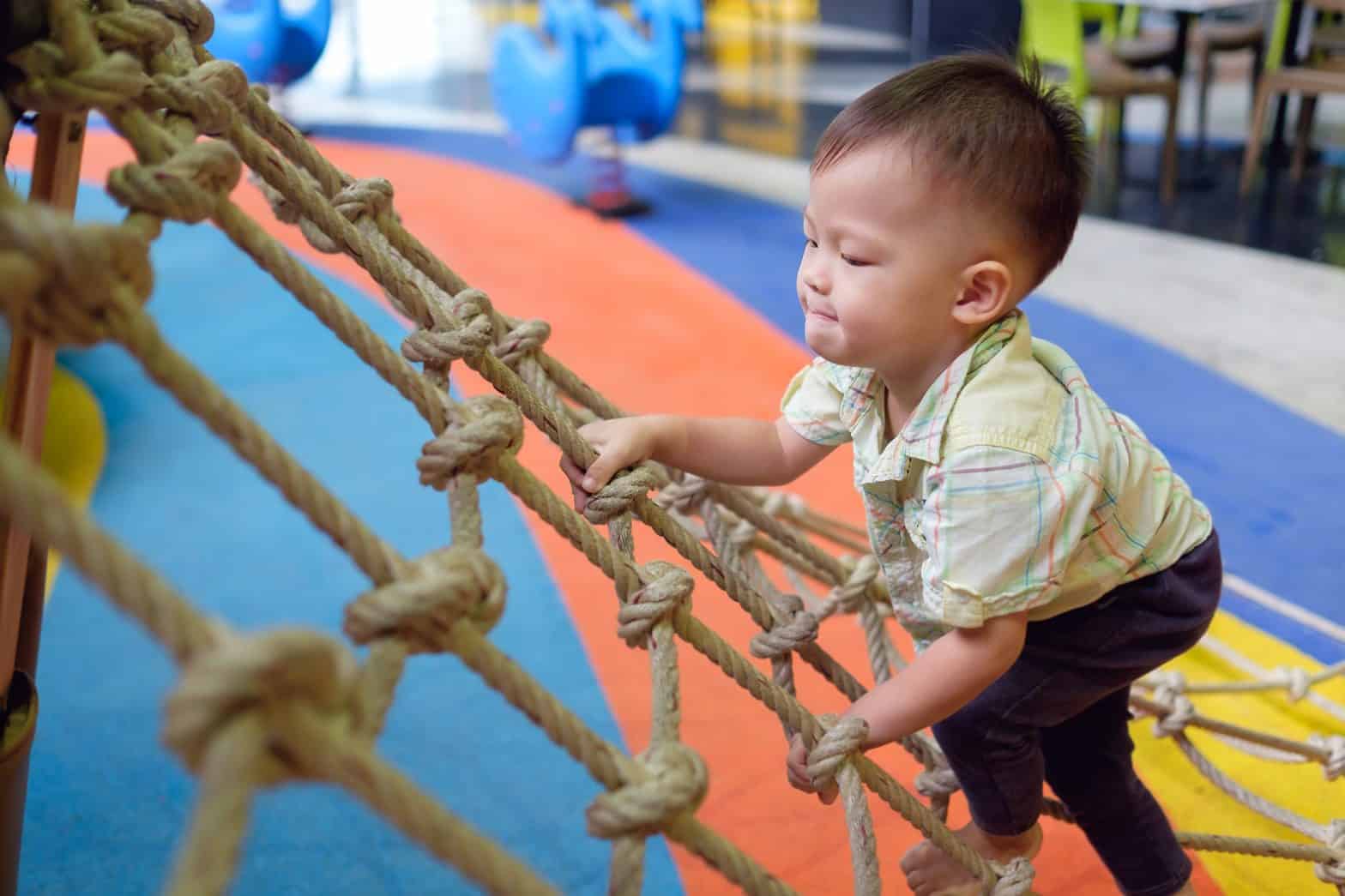
Guide Series: Preschoolers starting primary 1

This guide provides comprehensive Information on Preschoolers starting Primary 1.
Raising a resilient child
- Written By Jacquelynn Ann Thangavelu
- Updated on
Articles In this Guide
Resilience, meaning the ability to bounce back from adversity while maintaining one’s emotional well-being, is essential for a child’s development and success.
Resilience helps to build a child’s strength and adaptability, which is crucial in today’s competitive world. This ensures that when your child encounters setbacks in life, they will be able to bounce back from it even stronger than before.
Why is raising a resilient child important in today’s time?
Building Resilience in children is crucial, especially today, as the heavy – overload of digital information and constant use of technology can cause a lot of stress and anxiety issues, eventually leading to mental health and stress-related disorders.
It’s a life skill that kids take with them into adulthood. The more resilient person is, the less they experience extreme stress as they are equipped to deal with life’s pressures.
Building Resilience in children improves their mental health. It helps children combat feelings of hopelessness, as resilient children are more likely to believe they can triumph over obstacles. In this same vein, Resilience can also help children manage their fears regarding uncertainty in the future.
Being resilient enhances a child’s academic performance. Resilience is critical in helping children learn from their mistakes, as opposed to them being utterly terrified of and feeling defeated by failure. Hence, resilient children are more likely to put in the effort to learn from their mistakes and improve their learning abilities.
Furthermore, Resilience can help boost a child’s self-confidence. Children who develop Resilience are more likely to weather the storms of life. This will instil in them a sense of pride and boost their self-confidence, as they will know that they have the power to overcome any obstacles that life throws at them.
Lastly, Resilience helps to improve your child’s creativity. It often requires children to think creatively about solving complex issues, thereby training them to solve problems critically and creatively.
Also read : Helping kids become independent learners
Obstacles in building a resilient child
Of course, raising a resilient child is not easy. Many obstacles can hinder your efforts in instilling Resilience in your child.
For example, technology can prove detrimental to your resilience-building efforts. Technology enables children to gain instant access to information and rewards. Such rewards are often present in video games, where children can complete simple tasks to receive a massive dopamine rush. This could also lead to your child expecting instant gratification in real life. Needless to say, this may hinder your efforts in resilience-building as instant gratification makes children more impatient and less persistent.
Furthermore, Singapore’s education system is overly focused on academic results and may cause your child to develop a fear of failure. This culture of high academic pressure is, however, not only perpetuated by schools but also by well-meaning parents.
As a parent, it is understandable that you want your child to succeed academically. However, parents with unreasonably high expectations for their children’s academic performances often end up harming their children by causing them to fear the concept of “failure”.
Lastly, bullying is a common epidemic in most schools. Bullying can drastically affect your child’s self-esteem, which may cause them to feel inadequate or incapable of dealing with life’s challenges. This could lead to lower levels of Resilience in bullied children.
Role of parents in shaping a resilient child
Now that we’ve covered the importance of building Resilience in your child and the obstacles you may face, you may wonder how to instill Resilience in your child. Here are a few things you can do to help shape your child into a resilient person.
Start at home: You should promote a nurturing home environment for your child. In this environment, they can feel comfortable and safe in expressing their emotions and thoughts. This will help your child cultivate their own innovative methods of overcoming obstacles. A nurturing home environment enables a child to learn from their mistakes.
When your child makes a mistake, harshly punishing them is counterproductive as it teaches your child to be more afraid of making mistakes than actually learning from them. As such, in a nurturing home environment, you should strive to turn your children’s mistakes into opportunities for learning. This will help to promote a growth mindset in your child.
Let them take charge: You can help develop your child’s problem-solving skills by allowing them to face age-appropriate challenges and encouraging them to think of innovative solutions. By doing so, you are teaching them how to develop critical thinking skills.
Set realistic expectations: As a parent, wanting the best for your child is natural. However, it would help if you considered your child’s learning abilities while setting your expectations for them.
When you set reasonable expectations, your child can feel a sense of pride when they accomplish a goal instead of feeling defeated by constantly falling short of your expectations. After all, your child will be more willing to put in the effort to improve their skills if they see progress.
Teach stress-management techniques: Meditation, yoga, and engaging in creative activities are examples of positive coping strategies that can help your child manage stress and anxiety. These positive coping strategies will likely stick with them as they grow and will help them overcome challenges in life without feeling overly daunted.
Be a role model: You can help set a positive example for your child by sharing some healthy stress-management techniques with them and highlighting how you navigate “adult” challenges.
Help them find a sense of purpose: By helping your child identify their passion in life, you can guide them in finding their life purpose. A sense of purpose can motivate your child to persevere during difficult times.
Build partnerships with your child’s school: Request the school to host workshops for parents to learn how to build Resilience in their children. Attending professional workshops will equip you with the skills to raise a resilient child.
Overall, promoting Resilience in children is crucial in developing their mental fortitude. Resilience, meaning the ability to bounce back from challenges and adapt to them, is a person’s ability to cope with the ups and downs of life.
By playing an active role in building your child’s Resilience, you can equip them with the tools they need to lead a fulfilling life, now and in the future.
Loved Our Articles? Subscribes To Get Updates Directly To Your Inbox!
Explore Klassbook for more Classes
To explore more classes, go through our list of various Subject list here. Why not start with a trial class to gauge your child’s interest?

Jacquelynn is a recent political science graduate from the National University of Singapore. she finds solace in writing, in creating meaningful and compelling narratives that appeal to a diverse range of individuals. To her, writing is not merely a form of self-expression, it is an art form that enables to connect with and inspire people from all walks of life.
Loved Our Articles? Subscribes To Get Updates Directly To Your Inbox!
- Is your preschooler starting Primary 1? Prepare them well for a smooth ride
- P1 Preparation Class: A Bridge to Success
- Popular P1 Preparation Classes in Singapore for your Preschooler.
- Helping kids become independent learners
- Raising a resilient child
- Preschoolers and how parents can kindle their interest in reading
- Preschoolers & money management – Fun ways to teach money sense to tots
- Tuition Centre vs Private Tuition: Which Is Right For Your Child?
- Learning Hindi language – Hindi Society Singapore and other Hindi Tuition centres






